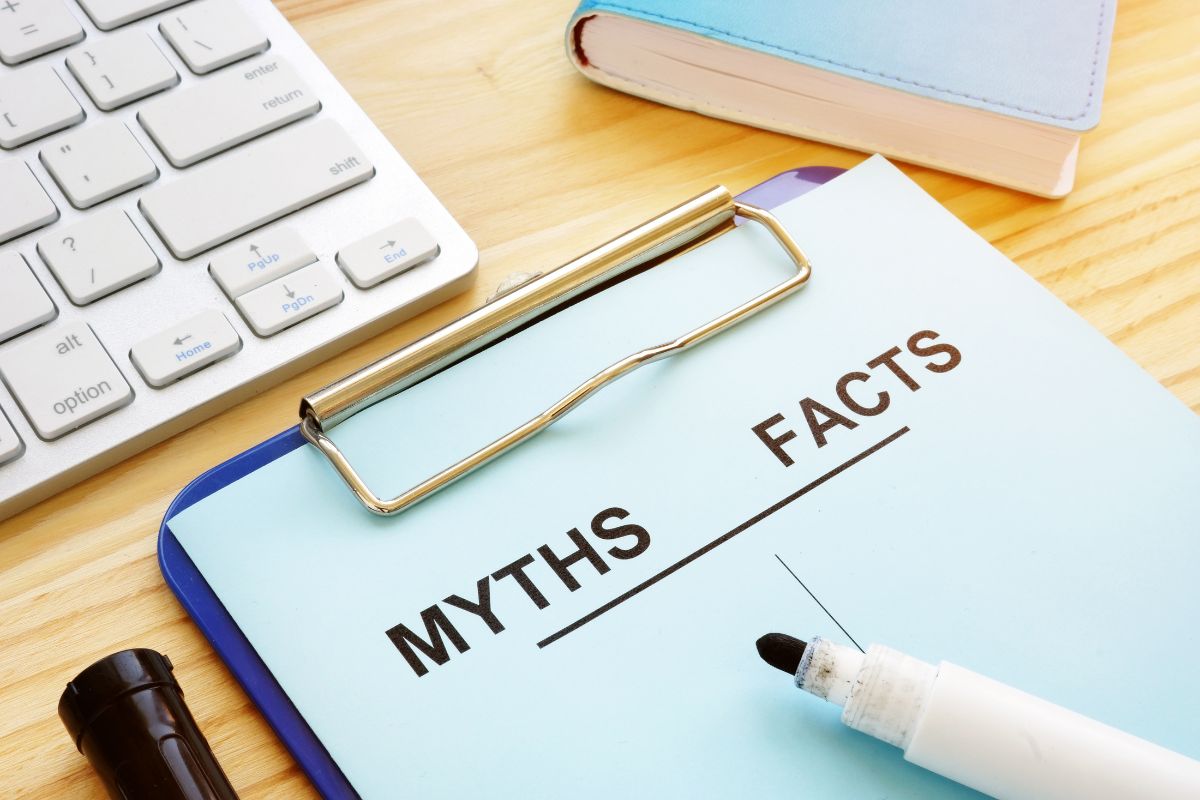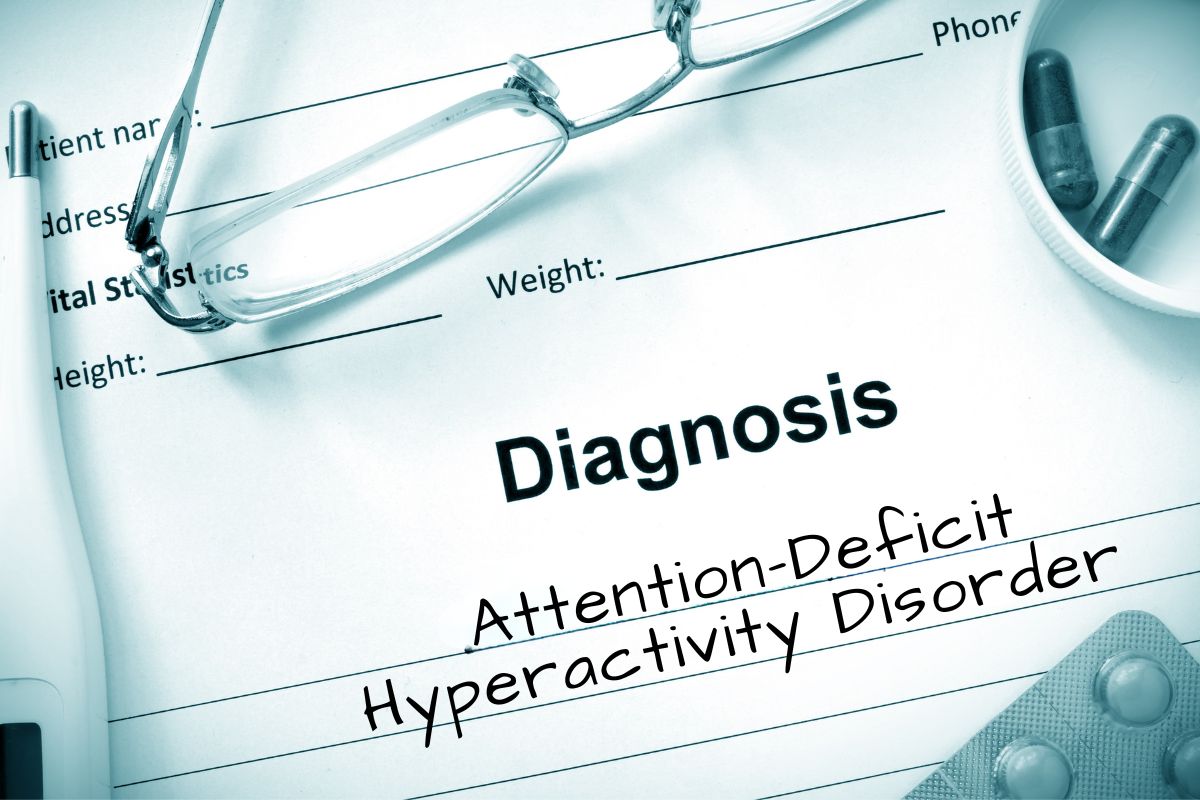Your Guide to ADHD Diagnosis & Treatment
If you’ve spent years wondering why traditional productivity hacks never seem to work for you—
or why focusing feels like trying to tune in to one radio station while 50 others play in the background. . .
—you’re not alone.
Many adults with ADHD go undiagnosed for years, often chalking up their struggles to personality quirks, laziness, or
“just needing to try harder.”
But ADHD is real, and getting a proper ADHD examination (often referred to as ADHD testing or ADHD assessment) can be life-changing.
In this post, we’re diving into what an ADHD examination actually looks like, how healthcare professionals determine a diagnosis, and why getting the right answers matters.
From understanding key symptoms to exploring the different assessment tools available—
we’ll break it all down
—minus the medical jargon overload.
An accurate ADHD diagnosis isn’t just a label; it’s the first step toward finding strategies that actually work for your brain.
Misdiagnosis or going undiagnosed can lead to years of frustration, affecting everything from work performance to relationships to overall well-being.
The good news?
Understanding ADHD and how it shows up in adulthood can help you take control and find the support you deserve.
Let’s take a closer look at what an ADHD examination really involves.
What Is ADHD?
ADHD (Attention Deficit Hyperactivity Disorder) isn’t just about being easily distracted or fidgety—it’s a neurodevelopmental condition that affects how the brain manages attention, impulses, and energy levels.
And despite what many people think, it’s not just a childhood thing.
Plenty of adults with ADHD go undiagnosed for years, often mislabeling their struggles as laziness, a lack of discipline, or “just the way I am.”
Spoiler alert: It’s none of those things.
ADHD shows up differently in everyone. Some people battle constant brain fog and struggle to stay focused, while others feel like they’re powered by an unstoppable motor.
Some experience both at different times.
This variability is one of the reasons ADHD can be tricky to identify, especially in adults who have spent years developing (sometimes exhausting) coping mechanisms to get by.
But here’s the thing: ADHD has nothing to do with intelligence or potential.
In fact, many adults with ADHD are incredibly creative, innovative, and full of big ideas.
The challenge?
Turning those ideas into action, staying organized, and managing the daily demands of life in a way that works for their unique brain.
Unfortunately, ADHD is still misunderstood, and outdated stereotypes can make it hard for adults to recognize the signs in themselves.
That’s why an ADHD examination is so important—it’s not about labeling yourself, but about finally understanding why your brain works the way it does and learning how to work with it, not against it.
Signs and Symptoms of ADHD
ADHD symptoms tend to fall into two main categories: inattention and hyperactivity-impulsivity—though if you’re an adult with ADHD, you might feel like you’ve got a little (or a lot) of both.
The way these symptoms show up can vary wildly from person to person, which is one of the reasons ADHD often flies under the radar in adulthood.
Inattention: The “Wait, What Was I Doing Again?” Struggle
If you constantly feel like your brain has 37 open tabs (and at least a few of them are frozen), you might relate to the inattentive side of ADHD.
Symptoms can include:
- Struggling to focus on tasks—especially the boring ones
- Forgetting appointments, deadlines, or why you walked into a room
- Starting projects with enthusiasm, only to abandon them halfway through
- Losing track of conversations (not because you’re rude, but because your brain took a detour)
- Feeling overwhelmed when trying to organize tasks or plans
This isn’t just about being “a little forgetful” or “bad at multitasking.”
For adults with ADHD, inattention can affect everything from work performance to maintaining friendships, simply because keeping up with details feels like an uphill battle.
Hyperactivity & Impulsivity: The “Why Am I Like This?” Energy
Hyperactivity in adults doesn’t always look like bouncing off the walls—it can be more internal, like a constant sense of restlessness or an inability to just be still.
Some common signs include:
- Feeling like you need to always be doing something (even when exhausted)
- Interrupting people or blurting things out before thinking
- Struggling to sit through long meetings without fidgeting or zoning out
- Acting on impulse—whether it’s making quick decisions, overspending, or overcommitting to plans you’ll later regret
While these traits can sometimes add spontaneity and creativity to life, they can also lead to frustration—both for you and those around you. Impulsivity can impact relationships, finances, and even career choices if left unchecked.
ADHD Is More Than Just “Being Distracted”
ADHD isn’t just a quirky personality trait—it’s a neurodevelopmental condition that can shape how you navigate life.
Left unrecognized, it can lead to chronic stress, low self-esteem, anxiety, and even burnout.
But the good news?
Once you understand how your brain works, you can start building systems that actually support you.
Recognizing the signs is the first step toward getting the tools, strategies, and support you need to thrive.
Why Early ADHD Detection and Diagnosis Matter
Let’s be real—getting an ADHD diagnosis as an adult can feel like a giant “Aha!” moment.
Suddenly, all those years of struggling with focus, impulse decisions, and feeling like you’re always one step behind make a lot more sense. But why is early detection so important?
1. Finding Your Toolkit Sooner
The sooner ADHD is identified, the sooner you can start figuring out what actually works for your brain.
This isn’t about slapping on a label—it’s about gaining access to coping strategies, tools, and treatments that can genuinely improve your quality of life.
Early detection allows you to put systems in place that help you thrive in your career, relationships, and daily routines.
2. Reducing the Risk of “What’s Wrong With Me?” Syndrome
Undiagnosed ADHD can lead to years of self-doubt and frustration. Without knowing why you struggle with things others seem to manage effortlessly, it’s easy to internalize those challenges as personal failings.
An early diagnosis flips that script—it’s not about what’s “wrong” with you; it’s about understanding how your brain operates—
and finding ways to work with it, not against it.
3. Preventing the Domino Effect
Left unchecked, ADHD doesn’t just stay in its lane. It can bring along uninvited guests like anxiety, depression, and chronic stress.
Understanding your ADHD early means you can tackle these issues head-on, potentially avoiding a cascade of mental health challenges. It’s all about getting ahead of the curve before burnout becomes your default mode.
4. Building Stronger Relationships
ADHD affects more than just your to-do list—it can impact relationships with partners, friends, and colleagues. Early diagnosis gives you the chance to communicate what you need and why certain things might be challenging.
It opens the door to understanding, patience, and better communication, which is a game-changer in both personal and professional settings.
5. Creating a Future Tailored for You
Knowing you have ADHD lets you design your life around it, rather than constantly trying to fit into a mold that was never built for your unique mind.
Whether it’s choosing a career that plays to your strengths or developing routines that actually stick, early diagnosis is about setting yourself up for long-term success.
Breaking the Stigma
Unfortunately, ADHD is still widely misunderstood, especially in adults.
Stigma can keep people from seeking help, thinking their struggles aren’t “serious enough” to warrant attention.
But early detection isn’t just helpful—it’s transformative.
By talking openly about ADHD, we pave the way for others to recognize the signs in themselves and get the support they deserve.
Types of ADHD Assessments and Evaluations
So, you’ve started to suspect you might have ADHD.
Maybe you’ve taken every online quiz you could find (because hyperfocus is a thing), or maybe a friend casually mentioned,
“Hey, that sounds like ADHD.”
But how do you actually get evaluated for ADHD?
Diagnosing ADHD in adults isn’t as simple as checking a single box—it’s a comprehensive process that looks at your history, symptoms, and how ADHD affects your daily life. Here’s what you can expect:
1. The Clinical Interview: Telling Your ADHD Story
First up, a healthcare professional—like a psychologist, psychiatrist, or ADHD specialist—will sit down with you for a deep dive into your life history, behaviors, and challenges.
They’ll ask about:
- Struggles with focus, organization, impulsivity, and time management
- How ADHD symptoms have shown up in school, work, and relationships
- Any past coping mechanisms (hello, last-minute adrenaline-fueled deadlines)
- Family history of ADHD or other mental health conditions
This isn’t just small talk—it helps build a complete picture of how your brain works and whether ADHD has been a lifelong pattern (which is key for diagnosis).
2. Standardized Rating Scales & Self-Reports: Measuring the Chaos
You’ll likely fill out questionnaires that assess ADHD symptoms in different areas of your life.
These are scientifically designed tools that help quantify the frequency and intensity of ADHD-related behaviors. Some of the most common ones include:
- The Adult ADHD Self-Report Scale (ASRS) – A quick but insightful questionnaire about common ADHD traits.
- The Barkley Adult ADHD Rating Scale – Measures how ADHD symptoms affect things like work performance and emotional regulation.
- The Conners Adult ADHD Rating Scale (CAARS) – Helps compare your symptoms to standardized data for ADHD diagnosis.
Sometimes, a close friend, partner, or family member may also be asked to complete a questionnaire to provide another perspective on how your ADHD symptoms show up in daily life.
3. Behavioral Observations: Seeing ADHD in Action
In some cases, healthcare providers might gather real-world observations of how ADHD affects you.
For adults, this could mean discussing challenges in the workplace, looking at patterns of procrastination or impulsivity, or exploring how you handle daily responsibilities.
It’s all about understanding how ADHD plays out in the environments where you spend the most time.
4. Ruling Out Other Conditions
ADHD shares overlapping symptoms with anxiety, depression, and even sleep disorders, so part of the evaluation process involves ruling out other possible explanations.
In order to do that, your provider may ask about your mental health history, sleep patterns, and stress levels to ensure they’re getting a full picture.
Why a Full ADHD Assessment Matters
Because ADHD isn’t one-size-fits-all, getting a thorough evaluation ensures that your diagnosis (if confirmed) actually leads to helpful treatment.
A proper ADHD assessment isn’t just about saying,
“Yes, you have it”
—it’s about understanding your unique challenges and strengths so you can build a plan that works for your brain.
If any of this sounds like you, getting an ADHD examination could be the first step toward making life feel a little less chaotic—and a lot more manageable.
Understanding the ADHD Diagnostic Process
So, how does someone actually get an ADHD diagnosis? It’s not as simple as taking a quick quiz (even though also offer one of those to get you started!), and there’s no single medical test that says,
Yep, you’ve got ADHD!
Instead, the diagnostic process is a deep dive into your symptoms, history, and overall functioning to ensure an accurate diagnosis.
1. The DSM-5 Criteria: The “Official Rulebook”
ADHD diagnosis is guided by the Diagnostic and Statistical Manual of Mental Disorders (DSM-5)—basically the go-to manual for mental health professionals. To be officially diagnosed, an adult must:
- Show a consistent pattern of inattention and/or hyperactivity-impulsivity
- Have had these symptoms for at least six months
- Experience symptoms that interfere with daily life (work, relationships, responsibilities)
- Have had these symptoms since childhood, even if they weren’t recognized back then
This last point is a big one. Since ADHD is a lifelong condition, a healthcare provider will ask about past struggles in school, work, and relationships to make sure symptoms didn’t just pop up in adulthood.
(Because if they did, it might be something else is going on).
2. Ruling Out Other Conditions (Because ADHD Likes to Disguise Itself)
ADHD can look a lot like anxiety, depression, or even sleep disorders—so part of the diagnostic process involves making sure something else isn’t the root cause.
For example:
- Chronic stress or anxiety can cause distractibility (but it’s not ADHD)
- Depression can lead to forgetfulness and trouble focusing (but it’s not ADHD)
- Sleep deprivation can mimic attention issues (but again, not ADHD)
A thorough evaluation helps distinguish ADHD from other conditions so that you get the proper diagnosis—and the right support.
3. The Team Approach: It’s Not a Solo Mission
Diagnosing ADHD often involves multiple professionals, including psychologists, psychiatrists, and sometimes even medical doctors.
If you’re comfortable, input from partners, close friends, or family members can also be helpful—they might offer insights into patterns you’ve overlooked.
The goal of this comprehensive process isn’t just to slap a label on things. It’s about making sure you fully understand how ADHD affects your life so you can finally start working with your brain instead of against it.
Common Misconceptions About ADHD

Even with growing awareness, misconceptions about ADHD are still everywhere. These myths can make it harder for adults to recognize their own ADHD, seek support, or feel validated in their struggles.
So, let’s bust some of the biggest ones:
Myth #1: ADHD Is Just a Lack of Discipline
If you’ve ever been told to:
“just try harder”
or
“be more responsible,”
you know how frustrating this myth is.
ADHD isn’t about laziness, lack of willpower, or bad habits—it’s a neurological condition that affects attention, impulse control, and executive function (aka, the brain’s ability to plan and organize).
In fact, research shows that ADHD has a strong genetic component—meaning if you have it, there’s a good chance someone else in your family does too.
Blaming ADHD on parenting or personal effort only adds to the stigma and makes it harder for people to seek real solutions.
Myth #2: ADHD Is Just a Childhood Thing
A lot of people think ADHD is something kids “grow out of”—but the reality? Most adults with ADHD were once kids with ADHD, whether or not they were diagnosed.
The symptoms don’t disappear, but they often change.
Instead of bouncing off the walls like an energetic 6-year-old, an adult with ADHD might experience:
- Mental restlessness (a constant stream of thoughts that won’t slow down)
- Chronic procrastination (waiting until the last minute… every single time)
- Difficulty with time management (underestimating how long things take)
- Struggles with emotional regulation (big feelings, fast reactions)
Recognizing ADHD as a lifelong condition is key to making sure adults get the support they need—whether they were diagnosed at 7 or 37.
Myth #3: ADHD Looks the Same for Everyone
Nope!
ADHD isn’t a one-size-fits-all condition.
Some people are constantly on the move, while others get lost in their own thoughts. Some are hyper-organized in certain areas but struggle with basic daily tasks.
This variability is why some people fly under the radar—especially women, who are often misdiagnosed with anxiety or depression instead.
Understanding that ADHD presents differently in different people helps break down the harmful stereotype that it’s just about being hyperactive or distracted.
Everyone’s ADHD experience is unique, and treatment should reflect that.
Breaking the Myths = More Support & Understanding
The more we challenge these misconceptions, the easier it becomes for adults with ADHD to get diagnosed, access helpful strategies, and stop feeling like they’re “failing” at life.
ADHD isn’t a personality flaw—
it’s a different way of thinking and processing the world.
And when you work with your ADHD brain (instead of against it), things can start feeling a whole lot easier.
The Role of Psychological Testing in ADHD Diagnosis
When it comes to diagnosing ADHD, psychological testing plays a key role in getting the full picture. Sure, clinical interviews and symptom checklists help, but testing takes it a step further—it helps pinpoint exactly how ADHD affects your brain and daily life.
Why Psychological Testing Matters
ADHD isn’t just about being distracted or impulsive; it affects executive function, which includes things like:
- Time management (losing track of time or constantly running late)
- Organization (struggling to plan or prioritize tasks)
- Emotional regulation (going from zero to overwhelmed fast)
- Working memory (forgetting what you were just about to do)
Psychological tests measure these cognitive functions to see where the biggest challenges lie.
The results help confirm an ADHD diagnosis and guide treatment plans that actually fit your brain’s unique needs.
How Psychological Testing Helps Differentiate ADHD from Other Conditions
ADHD symptoms can overlap with anxiety, depression, or even chronic stress—all of which can impact focus, motivation, and emotional regulation. That’s why testing is so important:
- It helps rule out other conditions that might look like ADHD (but aren’t).
- It ensures you get the right diagnosis and treatment instead of just guessing.
For example, difficulty focusing due to ADHD is different from trouble concentrating because of anxiety.
Psychological testing helps separate the two, leading to a more accurate diagnosis and better treatment options.
Getting the Right Tools for Your Brain
At the end of the day, psychological testing isn’t just about confirming whether you have ADHD—it’s about understanding your unique cognitive profile so you can find strategies that actually work for you.
Whether it’s medication, therapy, coaching, or lifestyle changes, a well-rounded ADHD examination (including psychological testing) ensures you get the best possible support.
If you’re considering an ADHD evaluation, asking about psychological testing could be a game-changer in figuring out how to work with your brain instead of fighting against it.
Treatment Options for Adults with ADHD
There’s no one-size-fits-all approach to managing ADHD.
What works for one person might not work for another, so the key is finding the right combination of strategies that support your unique brain.
ADHD treatment typically includes a mix of behavioral therapy, medication, coaching, and lifestyle adjustments—
—all designed to help you function with less stress and more success.
1. Behavioral Therapy: Learning the Hacks That Work for You
Behavioral therapy helps adults with ADHD develop practical skills to navigate life’s challenges.
It’s not about changing who you are—it’s about finding workarounds for the things that trip you up.
Therapy can help with:
- Time management & organization (because remembering appointments shouldn’t feel like solving a puzzle)
- Emotional regulation (learning to hit pause before reacting impulsively)
- Overcoming procrastination & motivation struggles (turning “I’ll do it later” into “I’ll do it now-ish”)
Cognitive Behavioral Therapy (CBT) is especially helpful for ADHDers, as it focuses on changing unhelpful thought patterns and developing strategies that actually stick.
2. Medication: A Powerful Tool (But Not the Only One)
Medication can be a game-changer for many adults with ADHD. Stimulant medications like Adderall and Ritalin help boost dopamine levels, making it easier to focus, stay organized, and complete tasks.
Non-stimulant options are also available for those who don’t tolerate stimulants well.
That said, medication isn’t magic—it works best when combined with other strategies.
Think of it as putting on glasses when you have blurry vision: it helps clarify things, but you still need to know how to read the map.
3. ADHD Coaching & Lifestyle Strategies: The Day-to-Day Game Plan
ADHD coaching and lifestyle changes can bridge the gap between knowing what to do and actually doing it. Some key strategies include:
- Creating external accountability (body doubling, accountability partners, reminders)
- Using ADHD-friendly tools (timers, checklists, planners that actually work for your brain)
- Building routines that stick (spoiler: they need to be fun, flexible, and easy to follow)
A combination of therapy, medication, and real-life strategies can help adults with ADHD not just get by—but thrive.
Support & Resources for Adults with ADHD
Navigating ADHD alone can feel overwhelming, but the good news?
There’s a whole community out there who gets it. Finding the right resources and support can make all the difference.
Finding ADHD Support That Actually Helps
Living with ADHD can feel overwhelming at times, but here’s the truth:
You don’t have to figure it out alone.
Connecting with the right support can make all the difference—whether you need guidance, encouragement, or real-life strategies to help you navigate work, relationships, and daily responsibilities.
ADHD Therapy & Coaching at The Center for ADHD
At The Center for ADHD, we offer personalized support tailored to the unique challenges of ADHD in adulthood.
Whether you’re looking for one-on-one coaching, therapy, or structured workshops, our expert team is here to help you:
✅ Build routines that actually stick
✅ Improve time management & organization (without the burnout)
✅ Manage impulsivity & emotional regulation
✅ Develop practical strategies for work, relationships, and daily life
In-Person & Virtual ADHD Support Groups
Connecting with others who truly understand what it’s like to live with ADHD can be life-changing. Our ADHD support groups provide a judgment-free space to:
- Share experiences and challenges with like-minded adults
- Learn ADHD-friendly strategies that actually work
- Feel supported by a community that gets it
ADHD-Friendly Workshops & Learning Resources
If you’re ready to take control of your ADHD with expert guidance, our workshops, coaching, and educational programs offer practical, science-backed strategies to help you thrive. Topics include:
- Time management & productivity hacks for ADHD brains
- Emotional regulation & impulse control
- ADHD in the workplace: Career & job strategies
You’re Not Alone—We’re Here to Help
Navigating ADHD as an adult comes with its challenges, but support is available, and it starts right here.
If you’re ready to take the next step, The Center for ADHD is here to provide the tools, guidance, and community support you need to thrive.
👉 Get in touch today to explore our ADHD therapy, coaching, support groups, and resources designed just for you!



